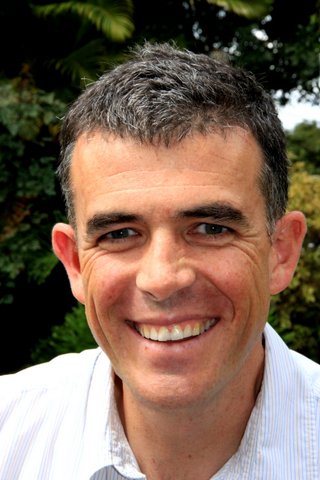Writer, justice and reconciliation ambassador and Pastor Alexander Venter speaks of four kinds of racists in post-apartheid South Africa. Following on from my last column – and adding to the continuing national dialogue on racism – I believe that these are very useful definitions in terms of helping us to name our prejudice and hence bring it under control. They are not specific to any one race; they apply to all South Africans regardless of colour or ethnicity. Which one are you?
Confirmed racists are prejudiced and open about it. They resent or even hate people of other races. This includes the phenomenon of xenophobia, where people fear, reject and even victimise those of other races. Some believe more than ever that blacks and whites – and indeed all differing races – should be kept apart. In the case of black and white, white confirmed racists believe black people are inferior. They will say things like: “Things were better under apartheid.” They will express open glee when a black person articulates such a misguided view as for them this is a slam-dunk in terms of confirming their own prejudicial belief systems. For black confirmed racists, white people are still imperialistic settlers and their retort might be along the lines of: “They must go back to Europe.” Confirmed racists are upfront and ‘honest’ about their racism. The attitudes of this group are hardening and they can often be heard dumping their hateful and offensive opinions and actions on those around them.
Suppressed racists are those who have buried their prejudices in the name of political correctness, keeping-the-peace, or fear of being judged. This will come with a decent measure of self-deception and denial. “I am not racist!” they protest (or perhaps even “I am not a racist but….”) and they may even resort to the old: “I have friends/colleagues who are black!” It doesn’t often take much – a particular event, issue, person or glass of wine – to bring out the racist comments and attitudes. The reality is that we can only supress things for so long before they pop out. This type of racism is no less destructive than Confirmed Racism because it pays lip service to principles of equality while opposing its implementation. This is particularly applicable when it comes to any form of redress particularly policies like BBBEE. It would appear that many South Africans are currently stuck at this level of racism. We haven’t engaged deeply and meaningfully with the hard and often painful process of facing our race demons and we certainly haven’t acknowledged just how vital it is that we do. This will take courage and hard, uncomfortable work – and many of us simply haven’t begun that journey. However, until we do South Africa will be caught in the twilight zone between two eras. This will impact on social cohesion, crime levels, economic growth and the strength of our democracy. Moving beyond this stage of racism is fundamental now to our progress as a nation.
Recovering racists are those who have acknowledged and faced their racial conditioning and the fact that if you were raised in South Africa then racism is intertwined in your very being. They are taking responsibility for this and they are consciously working on their thought processes, beliefs, attitudes and actions. They have dealt with their guilt and are free of this, but freedom is relative. Like people recovering from any addiction, they will always be in recovery and this is a daily journey. They are unlearning old ways of thinking and relating and are adopting new attitudes, behaviours and even speech patterns. They are working at inner and outer transformation of their lives and hence society at large. This is the stage we all need to get to. It takes us beyond denial by harnessing the power of vulnerability to admit our weaknesses and our struggles. Only when we do this can we heal – individually and hence collectively.
Pre-racists or Innocents are those who are in the pre-prejudice stage; they are our children. They are racially innocent provided of course their parents, extended family or other influential adults haven’t already polluted them with their prejudice. The post-apartheid generation has a wonderful opportunity to be racism-free in a way all other South Africans could never be. It will depend on our guidance and modelling – or lack thereof – as to whether this generation is lost to racism.
I would suggest that these definitions are very useful starting points but perhaps not as clear cut as 4 neat categories. For example I am a Recovering Racist but I sometimes catch myself suppressing racist thoughts because “that’s not what a recovering racist should think”. But again I ask – and I would urge personal honesty – which type/types of racist are you? Perhaps even more importantly, are you prepared to go on a journey to the next level of recovery?
Justin Foxton is founder of The Peace Agency.
My sincere thanks to Alexander Venter for giving me permission to quote extensively from his book “Doing Reconciliation – Racism, Reconciliation and Transformation in Church and World.”

